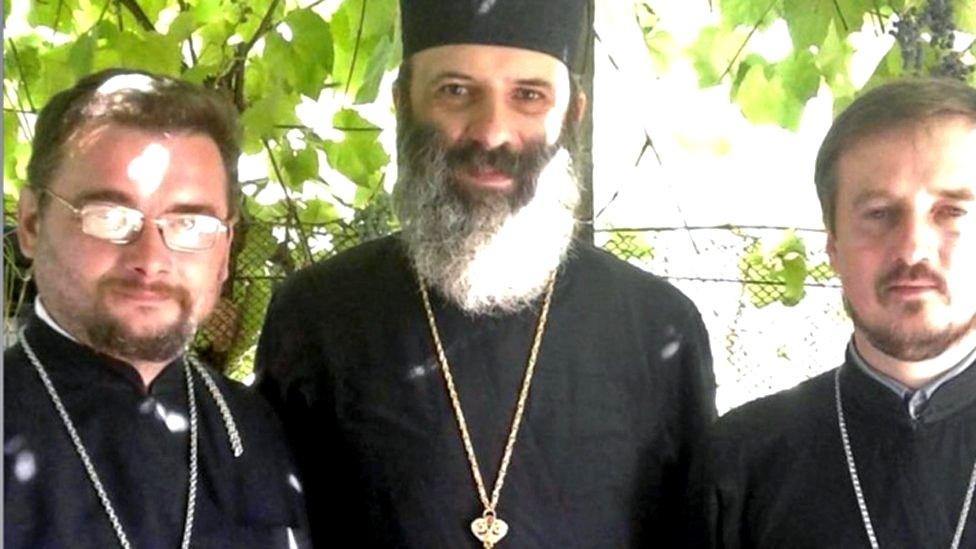Ukraine: People's generosity to refugees 'extraordinary'
- Published
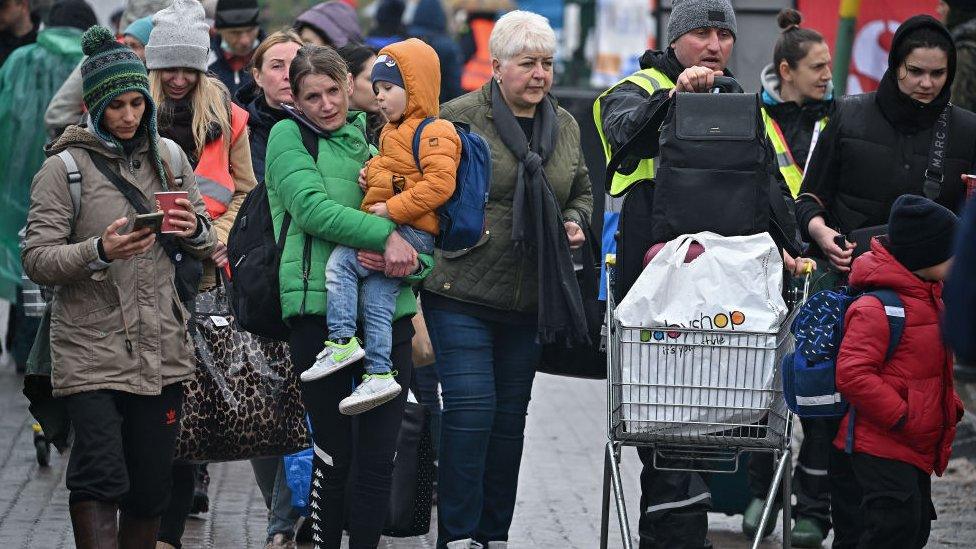
Refugees and volunteers at Medyka border crossing between Poland and Ukraine
Public response to the Ukrainian refugee crisis has shown people to be "more generous than a lot of the media and... politicians would like them to be," according to Dr Rowan Williams.
The former Archbishop of Canterbury said he felt the UK government "expects the worst" of people but the population was "readier to give its best".
More than 10,000 people in Wales have expressed interest in housing refugees.
The UK government has been asked to respond.
More than 10 million people have fled their homes in Ukraine, according to the United Nations High Commissioner for Refugees.
At the start of Russia's invasion, Boris Johnson defended criticism of the number of Ukrainian refugees who had been granted visas.
As of 31 March, 24,400 Ukraine family visas had been issued, external, against 32,800 applications received.
Speaking on BBC Politics Wales, Dr Williams, who is also a former Archbishop of Wales, said: "The government's response has been on the slow side... and it wasn't a particularly good start, but it's improving.
"I've often felt that the British people, when it comes to crises, are more generous than a lot of the media and a lot of the politicians would like them to be.
"Then there's that slightly double-edged aspect to the situation - 'Ukrainians are more like us, these are Europeans' and so it's a bit easier to welcome," said Dr Williams, from Swansea.
"Even when you're talking about refugees from further afield from Syria or from Afghanistan or wherever, local generosity is extraordinary... and I do often feel that the government expects the worst of the British population and the British population is readier to give its best."
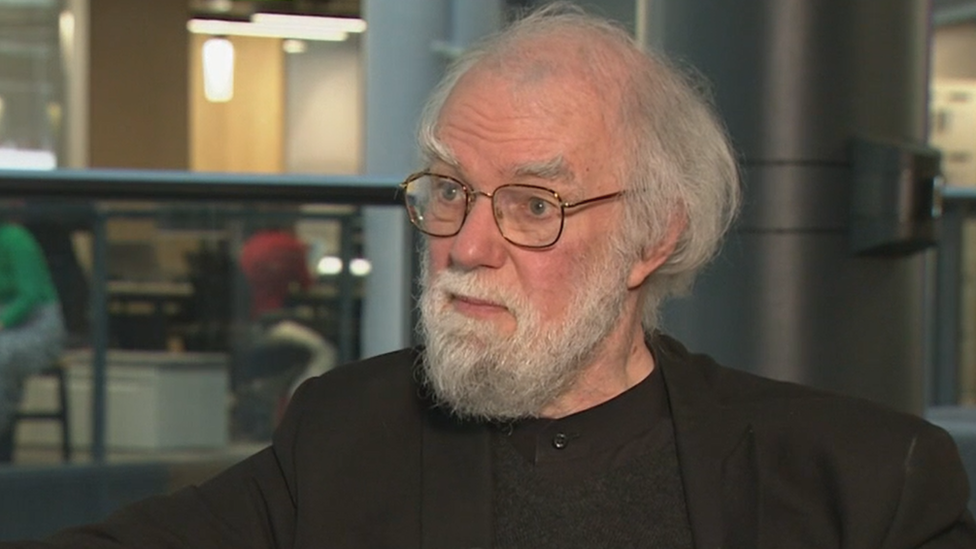
Dr Rowan Williams said people's "generosity is extraordinary"
Climate change and 'capitalist expansion'
On climate change, he questioned whether people and politicians are "grasping the magnitude" of the crisis.
"In the last maybe five to eight years it's come up the agenda, pretty rapidly for a lot of people, and far more people now are both aware of it and aware that they need to be doing something about it," he said.
"The problem often is they don't know quite what they can do or they feel that whatever they do is inadequate to the scale of the problem."
A recent report by the United Nations' Intergovernmental Panel on Climate Change said many of the impacts of global warming are now simply "irreversible" and over 40% of the world's population are "highly vulnerable" to climate.
Dr Williams also questioned whether "sheer, unbridled, capitalist expansion" was compatible with dealing with a climate emergency.
"That's not to say that the market has no role, it's not to say we go straight over to a kind of command economy," he said.
"It's to note that already within quite a lot of the commercial world, business world, there is a sense that profit alone is a kind of fiction because you can't sustain profit in an unsustainable social and material environment."
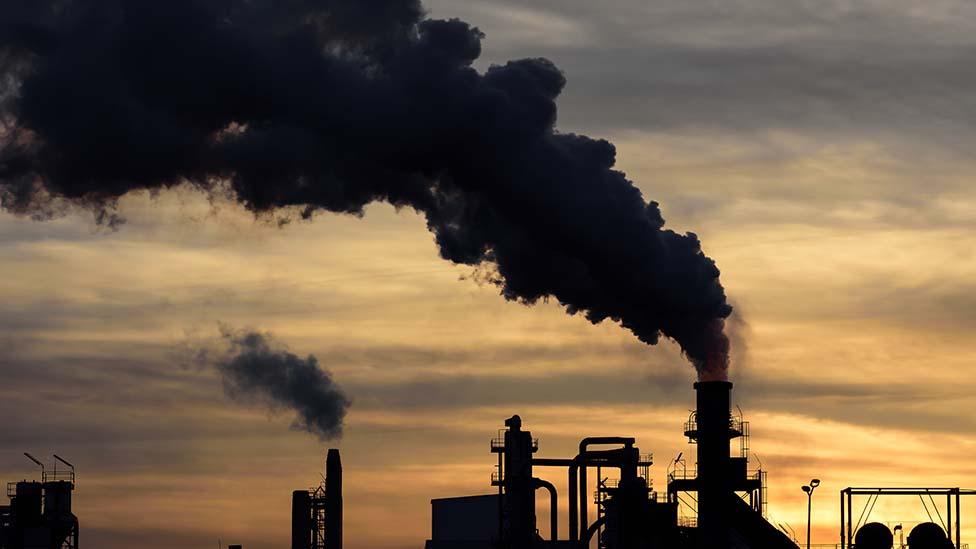
Global warming: "Far more people now are both aware of it and aware that they need to be doing something"
'Loss of trust'
Speaking ahead of Easter, Dr Williams was asked on Politics Wales as to how he reflected on an increasingly godless society.
"What we are facing is, I think, a general loss of confidence and trust in institutional religion, which has been going on for the last, probably the last century, all told.
"We're looking at the heritage sadly, of abuse and misconduct... so the institutions are not looking particularly good.
"At the same time I don't sense that there is overall a massive principled hostility to religion and I think there is, as the pandemic indicated, a remarkably widespread hunger for some sort of nourishment from spiritual sources.
"How do we solve this problem and say well, here we are, this is our offer and look as if we were a bit more confident, a bit more grateful about it. Maybe that would help," he added.

LESSONS FROM LOCKDOWN: How has the experience of lockdown changed us?
WILD MOUNTAINS OF SNOWDONIA: Five farming families open their gates and share their lives

- Published31 March 2022
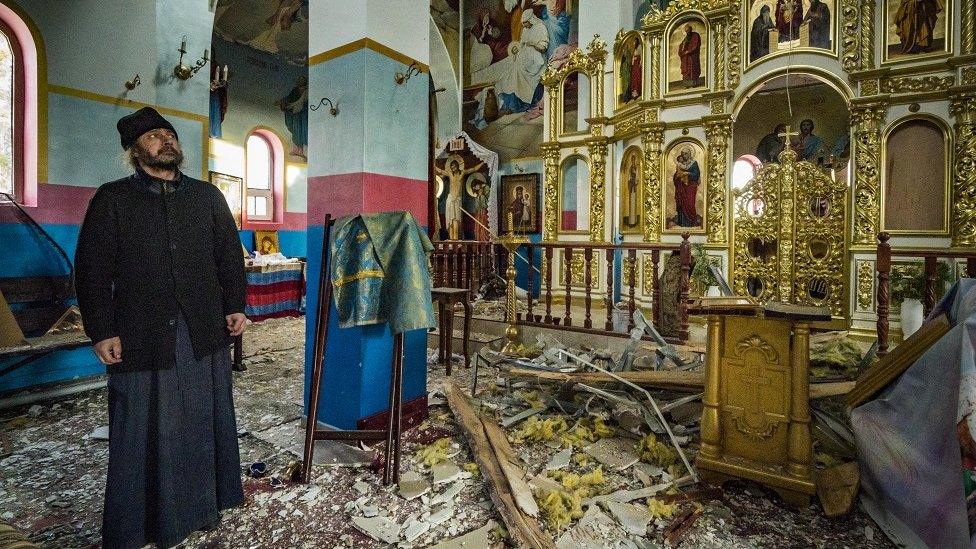
- Published25 March 2022
